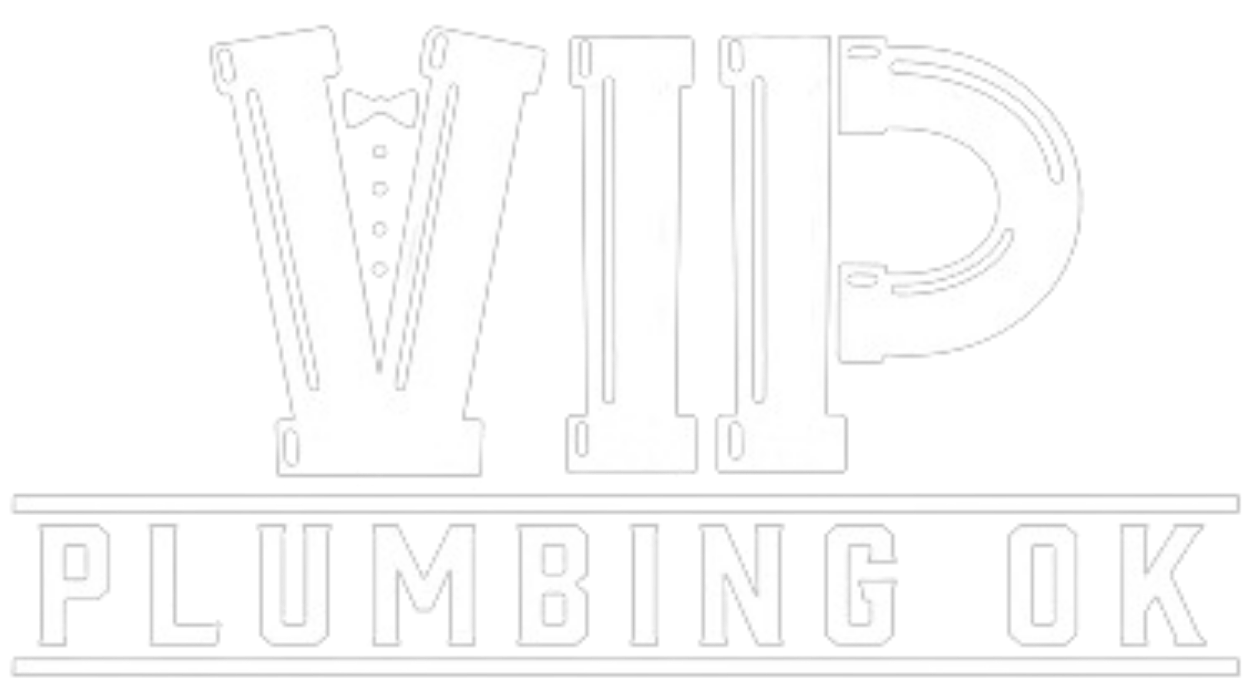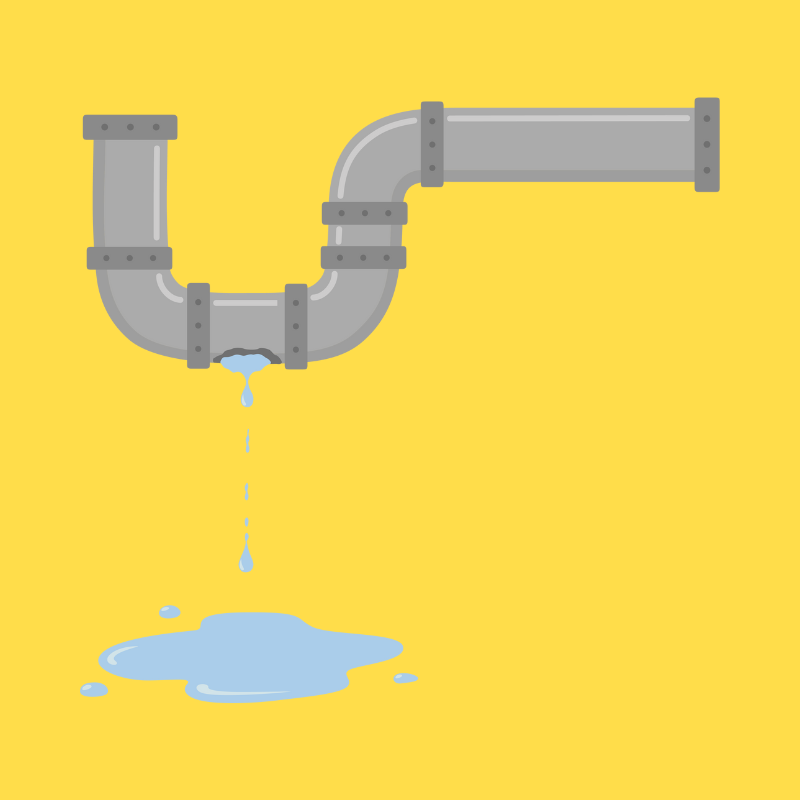Plumbing pipes are essential to your plumbing system, carrying in precious fresh, clean water and removing dirty wastewater to help keep your home comfortable and safe. But what happens when these pipes fail from being overly stressed, and how do we even recognize when a pipe is under stress?
In the article, we will look at what it means to have stressed-out pipes and learn what is an acceptable level of pressure in plumbing systems. Knowing the early signs of high pressure will increase awareness and allow action to be taken before a plumbing disaster strikes.
Finally, the common causes of high pressure will be discussed, as well as the precautions that can be taken to eliminate or reduce high-pressure problems.
What Is High Pressure?
Plumbing supply lines transfer clean water from a private well or the public water supply and deliver it to plumbing fixtures such as sinks and toilets and water-using appliances like dishwashers and washing machines. When these pipes are under stress, they bear too much load under too much pressure.
Stressed pipes can lead to leaking gaskets and seals, cracked or burst pipes, premature failure of the entire plumbing system, and even health-related issues.
What Is Considered Normal Water Pressure?
Water pressure that is too low is lackluster, and water that is too high can lead to multiple plumbing issues. So, what is the ideal pressure?
How Do I Test My Water Pressure?
The easiest way to determine the water pressure in a residential property is to purchase an inexpensive pressure gauge from the local home improvement store. Attach it to an outside faucet, turn the water on fully, and read the gauge. If an outdoor faucet is unavailable, you can screw on the gauge at a washing machine hose bib.
What Is Acceptable Pressure?
Water pressure is measured in pounds per square inch (psi), and a normal reading can register between 40-80 psi. It is best to adjust the pressure to closer to 60 psi for optimal pressure that creates no adverse effects. A professional plumber must deal with any reading higher than 80 psi.
Why Is High Pressure A Problem?
High water pressure may be delightful in the shower, but beyond that, it can create all kinds of plumbing and health-related issues.
Leaks Or Burst Pipes
Water running through pipes at high pressure can create excess wear and tear and loosen pipe joints. Over a period of time, the pipe walls can thin and weaken the pipe to the point where the pipe bursts, sending gallons of water into the living spaces of a home.
Loosened joints are no longer watertight, and leaks can develop that can go undetected for long periods. These hidden leaks can cause as much or even more damage than the obvious burst pipes.
Structural Damage
As water escapes the pipe, the building materials, such as drywall and insulation, quickly absorb the excess water. In direct contact with the wooden substructures, these saturated materials can begin to promote rot, compromising the structural integrity of a home.
Financial Consequences
The financial consequences of too high water pressure and the leaks it creates can be extensive. First, leaks waste water, which drives up monthly water bills. Leaks and bursts require costly repairs and, if the damage is severe enough, can lead to the early replacement of plumbing pipes, fixtures, and appliances, not to mention the home’s interior belongings.
Health And Hygiene
Leaking pipes can allow excess moisture to seep into the dark, hidden recesses of a home, and with poor ventilation in these areas, mold is very likely to grow. Mold begins multiplying within hours and can cause the inhabitants to suffer respiratory symptoms and allergic reactions.
High pressure can contribute to plumbing backups where the drinking water can become contaminated with the introduction of harmful bacteria or chemicals.
Inconvenience
Conditions resulting from high water pressure can cause enormous inconveniences for homeowners. An out-of-order toilet or a burst pipe can turn a charming home into an unusable space until repairs can be made.
Signs Of High Water Pressure
High water pressure is not always detectable, so we put together a list of common signs to watch for to help protect plumbing systems and increase the comfort and safety of the inhabitants.
Water Hammer
When water travels at a fast rate and is suddenly stopped when a faucet is shut, the water slams to an abrupt stop, causing the pipes to make a loud banging noise known as a wa. If your pipes are making unusual sounds, the water pressure should be professionally checked.
Running Toilet
When the water pressure exceeds 80 psi, the force it exerts can cause a toilet to leak. While not the most common reason for a running toilet, high water pressure should not be ruled out.
Dripping Faucet
High pressure can account for many leaking faucets as the pressure prematurely wears out washers, O-rings, and other components designed to keep a watertight seal. This issue can be easily corrected, but lowering the pressure can be an essential defense against faucet leaks.
Early Appliance Replacement
Excess wear and tear on appliance components can cause them to fail earlier than anticipated. This can upset a budget since most appliances are major investments that should last much longer.
Leaky Pipes
Every homeowner will experience a leaking pipe from time to time, but if the repair calls become more frequent, high pressure must be addressed.
What Causes High Water Pressure?
There are several possible causes of high water pressure from the water supplier to how a home is positioned from a water tower. Even a faulty water heater can cause water to increase in pressure.
Water Supplier
Oftentimes, high pressure originates outside of a home at the water supply side. As new neighborhoods are being built, they are added to the current, often outdated, municipal plumbing system. This extra strain on the system depletes the water pressure. A quick fix for the water supplier is to increase the water pressure, but this can backfire, leaving some homes with overly pressurized water.
Broken Or Never Installed Water Pressure Regulator
A water pressure regulator, if installed, is designed to automatically reduce the incoming water from the supply main so it is compatible with appliances and household fixtures. A malfunctioning valve will not detect nor lessen the water pressure, leading to the issues already described.
Position Of Home
Homes receive their water supply from a water tower positioned high above the community, which uses the force of gravity to get the water into all the homes and businesses in the area. If a house sits low in a valley or is very close in proximity to the tower, it can lead to high water pressure.
Water Heater
Water heaters are designed with expansion tanks that relieve excess pressure from heated water. If the expansion tank is not functioning correctly, as the temperature of the water rises it creates excessive pressure.
Preventing High Water Pressure
There are a few options to select from when wanting to decrease water pressure that is too high. First, we will discuss installing a water pressure regulator.
Install A Water Pressure Regulator
It is best to leave this job to the professionals as several factors are involved in correctly installing one. They are typically installed near where the main water line enters the home and close to the shutoff valve. A properly installed and functioning regulator will automatically adjust the water to keep it from damaging the plumbing system. Installing a regulator is a simple job and one we highly recommend.
Plumbing Inspections
Another option is to schedule regular plumbing inspections where water pressure can be monitored, water pressure regulators inspected, and a far-reaching evaluation of every aspect of a plumbing system to find and correct issues as soon as they develop.
Looking To Remedy High Water Pressure Issues In Your Home?
As can be seen, increased water pressure can destroy a home and threaten its inhabitants’ health. Maintaining proper water pressure is essential to prolonging the life of plumbing systems and avoiding premature replacement of fixtures and appliances and the likelihood of leaking or bursting pipes.
Suppose you recognize any early warning signs of high pressure. In that case, it is wise to consult an experienced and trustworthy plumber like ourselves to help determine the cause of your increased pressure and map out a plan to correct this condition.
We are licensed, insured, and available 24/7 to meet all of your plumbing needs. Please call us so we can address your high water pressure issues and restore your plumbing system to give you the peace of mind you deserve!

